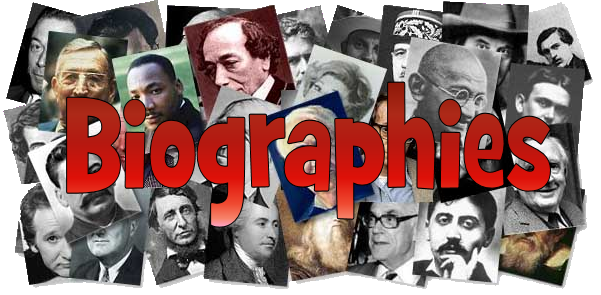Every Subject Chooses Its Author


How strange that a writer might be an authority on a life other than their own. How odd that in setting themselves aside—to better imagine another, objectively—a biographer often ends up producing a sort of veiled autobiography. Yet, perhaps self is not meant to be sacrificed entirely, in the art of biography, only long enough to return as Other.
In many ways, biography comes down to a question of temperament, a borderless affinity stretched across time and space. Something of a spiritual kinship must exist in order to be able to channel another’s spirit. This is the mysticism of the biographer: one who knows without knowing, whose “facts” unearthed during the hard work of research only go on to confirm initial intimations. (And the work itself is a labor of love, or perhaps an exploration of unlived possibilities).
“Every writer is a man given over to an obsession,” writes Graham Greene. The biographer is no exception. The act of biography is a kind of possession and exorcism. The biographer who dedicates years of their life, sometimes decades, to explore another’s must also experience all sorts of intensities, initiation rites, and illuminations.
Somewhere along the way, a life is transformed into a work of art. How much can actually be known for certain of another person cannot be said. Yet in the hands of an inspired biographer a figure may emerge from the mist, summoned from the dead, and made to walk and talk among the living. In this sense, a biographer must be seen as a creative artist in their own right. Whereas “nothing alive can be calculated,” as Kafka tell us, it can be approximated.
Sometimes in writing poetry, for example, it is necessary to become the poem—one agonizing line, or liberating verse, at a time. Something of this living-through was also required of us in attempting to translate the inner lives of our literary masters. Modern American poet Gregory Pardlo, in his extraordinary essay “Choosing a Twin,” echoes this truth while discussing a different discipline: “Translation is a practice of empathy,” he writes, “like choosing a twin, where affinity and kinship is a declarative act and not a passive discovery.”


Images: 1, 2
Well said, I think no writer can completely extricate themselves from their work. How would a biographer find the motivation to begin the mountain of work necessary unless they saw something in him/Her that they found captivating?
No matter how altruistic an endeavor might seem, we seek self-knowledge, whether consciously or unconsciously (the art of biography writing might be a combination of both).
To tell another's story without judgement and with compassion allows the reader to broaden her understanding of not just another but herself. For certain, the best biographer's have empathy for all his subjects.
Yes, it’s only with the eyes of love that we see, clearly. In a biography well told we might, as readers, also see our possibilities.
Apart from telling the truth, an excellent and well-read style! I've sent you a direct invitation on @Discord, and I hope you'll accept! Thank you! @originalworks ∜mp
Truth!
Hi! This is jlk.news intelligent bot. I just upvoted your post based on my criteria for quality. Keep on writing nice posts on Steemit and follow me @jlkreiss to get premium world news updates round the clock! 🦄🦄🦄